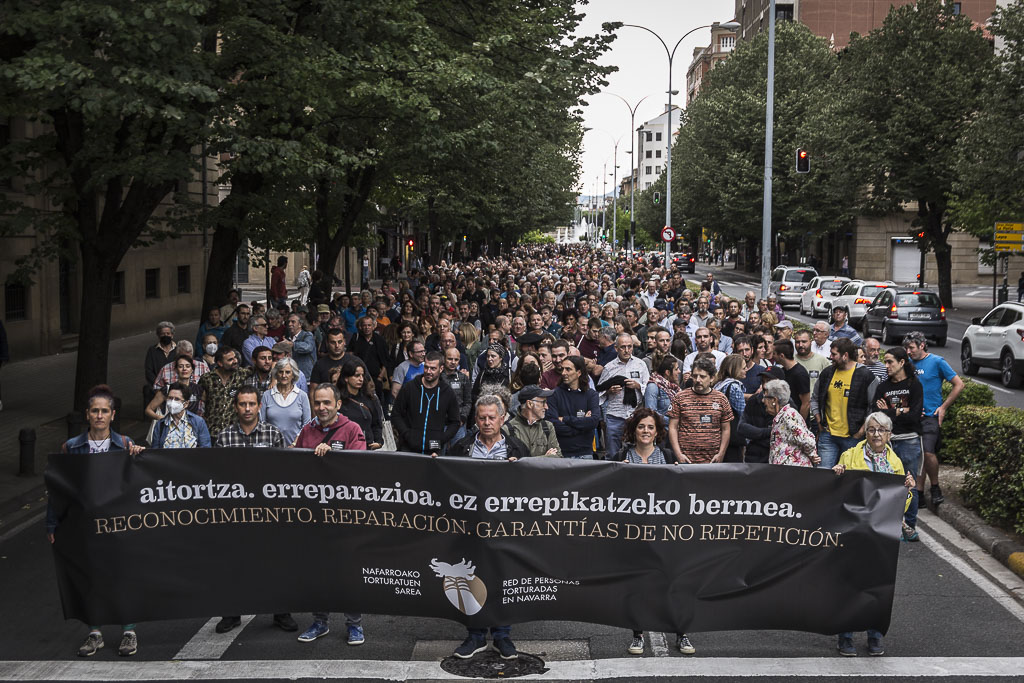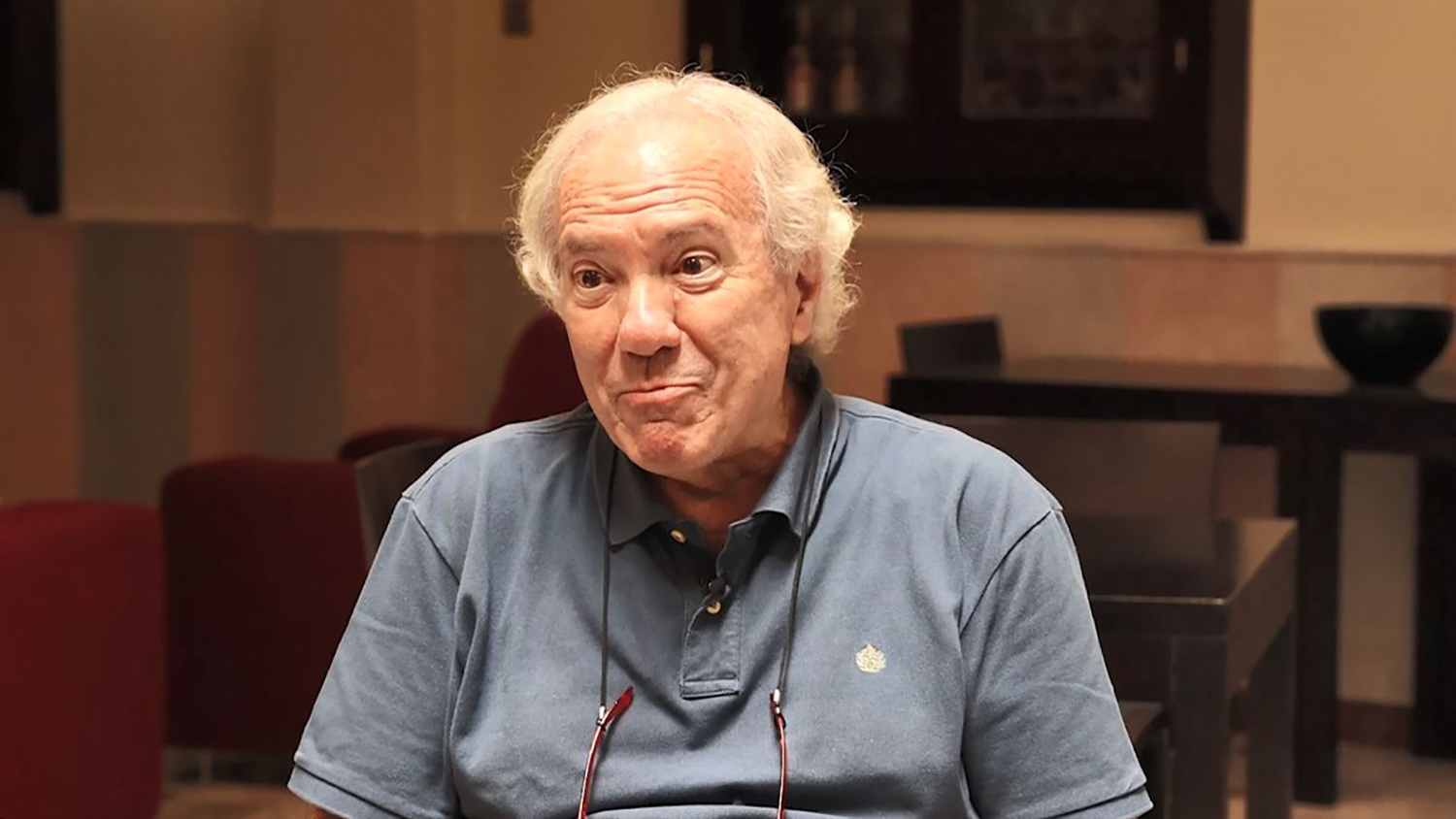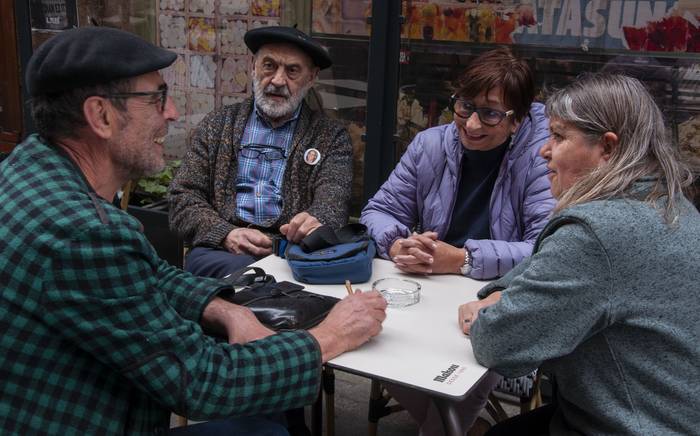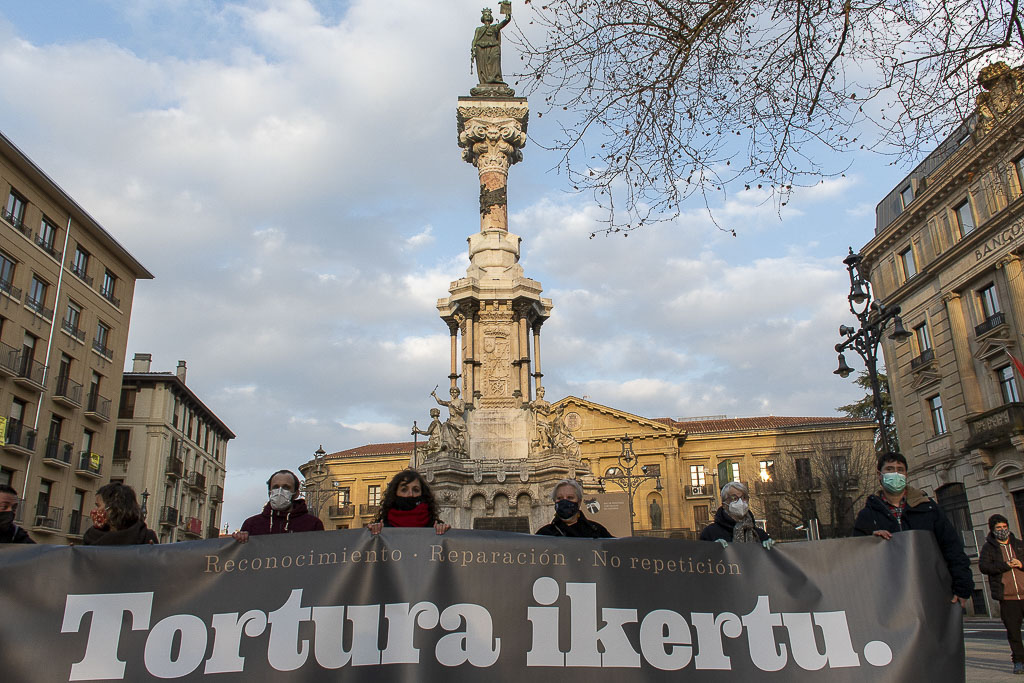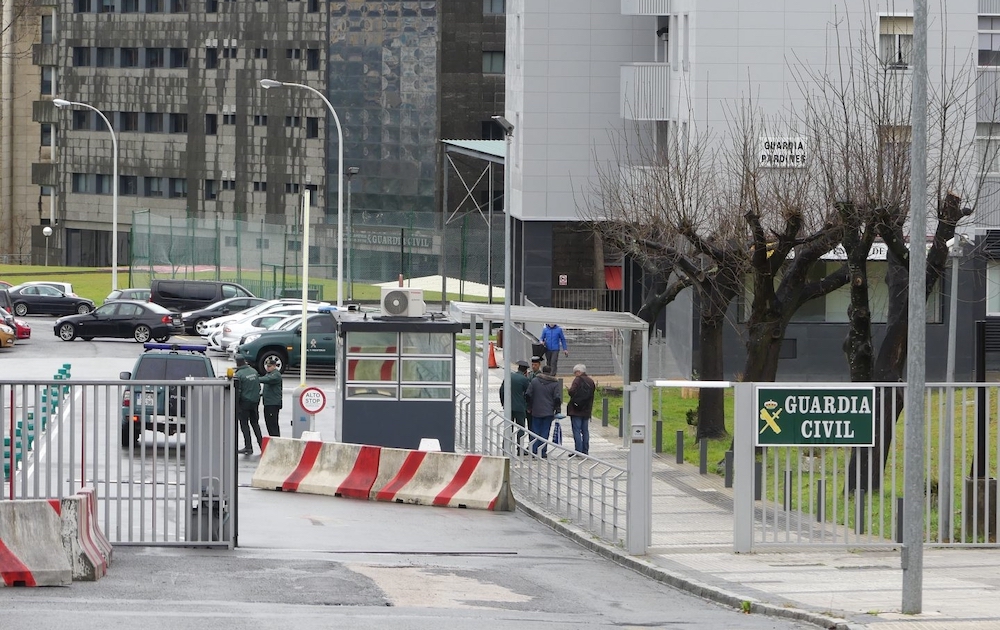"There is still much work to be done to spread the imaginary of torture"
- The tortured monkey has been dressed on the occasion of the celebration of the International Day against Torture, held this Saturday in Vitoria-Gasteiz. Otherwise it's Iker, a worker, an artist, a friend. He does not want to protect himself in closed categories, but has done a sincere exercise with himself and has decided that the militancy, the prison sessions and torture experienced in the past, as well as the time he has been waiting for the trial, will live him as he wants: without masks, moving his emotions and internal processes to the center.
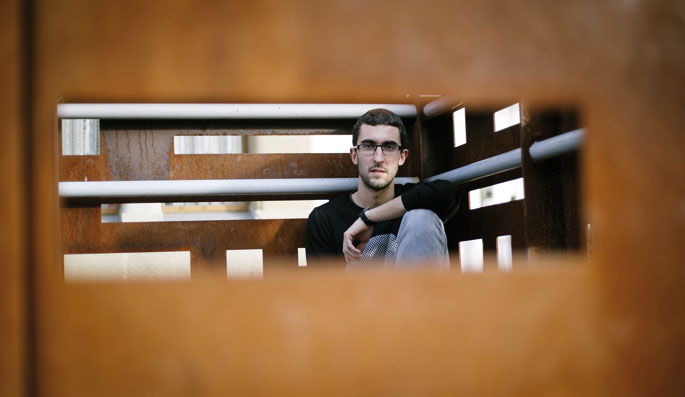
These days you've put on your monkey, but I've heard you say you don't want to build your head from the tortured role.
Indeed, even though torture and imprisonment are situations that have occurred in my life, I believe there are many more elements in my biography, so I do not want my identity to be built just under the label of ex-prisoners or tortured. In any case, these days I say that I have put on that suit because I have become accustomed to bringing this out from time to time, to opening the casings, to throw away what I have and to sewing the scars again, to achieve concrete political goals, but also as a therapy.
What is your relationship with the torture that caused you?
As I have already said, I have worked very hard on the subject. At first, when I left jail, I kept the day-to-day out of the street without paying special attention to what I had experienced. But eventually I realized that something didn’t work inside me, “I don’t know what happens to me, but this is not me.” It was superficial. Torture influenced my day to day, but at the same time I didn't feel anything. With psychological help, until I started feeling what they had done to us. From there, I think we have to broaden the imaginary of torture: it is not just physical harassment, it is the psychological component that prevails over time.
And all of a sudden it came into your hands -- a strange Eva Forest adventure.
That's right. This book, written in 1977, narrates the dialogue between ten women prisoners and has served to spread the imaginary of torture. I thought torture was a very physical practice, but over time they have sophisticated the method and made it a lot more psychological. When I was torn apart, the psychological part played a big part. Then I have understood that, in the long run, you have other aspects inside: guilt, shame… Imagine, I recently realized that there is something that makes me anxious and that until now has gone unnoticed, and that is precisely what to expect. I realize that waiting for something makes me uneasy and I want to believe that it is because of the hint that torture has left me. Eva Forest talked about all this in this book; the atmosphere around you, the fear that causes you psychologically, what you're left in...
How can that broader account he mentions be?
To begin with, it must be said that it is not easy for those of us who have experienced a certain political violence to make progress in life. And I don't mean that what's happened to us is the worst thing that can happen; there are many other tough situations in life. However, those of us who have been subjected to police persecution, imprisonment, sentencing or torture live with a great lack: what they have done to us has had a clear political intention and those responsible have never acknowledged that they did to us for that reason. No one has said that “we design a comprehensive strategy according to a political calculation to defeat you politically”: Torturing does not happen, it is decided, but we do not take responsibility for it. This differentiates our experience from other hard experiences; Alzheimer's is not the result of a political decision, but of torture.
On the other hand, you do not share the model of hegemonic man... Has this influenced you?
Of course, especially because masculinity has had a lot of influence on my identity. I have always put my excitement at the center and, in general, my marginal virility has had consequences. Among rivals and among my peers, it has been reflected in everyone. In general, it is not easy to put the emotional dimension at the center of a politicized space; moreover, I would say that even in the Abertzale Left or in feminism, masculine parties are the main ways that there are today to empower themselves. That's where things are.
You mean, it's not easy.
No. This difference weighs everywhere. Everyone blends identity and tendency, female virility and homosexuality. In the torture sessions, for example, I had some practices that simulated the sex with anca, because the connotations it has are clear; I guess they would do more harm to me. But also, and even if it's different, in the political spaces where I feel my own, emotion has a connotation of weakness. When I have put my feelings on the table, there has been discomfort, because emotions are foreign in political spaces, and because we tend to turn the person who depicts them on a victim. And I think we have all suffered a lot, but the difference is in the ways of managing it. I, as I say, have long decided to bring my inner processes to the center of my life, to try to live without masks. Along that road, it's going to give a place to my forms, and I'd like an Abertzale Left that's enriched by diversity.
Oraingoz Nafarroan, 53 izango dira estatuaren biktima aitortuak eta horietatik 27 torturaren biktimak. Floren Beraza, Txaro Buñuel, Cecilio Ruiz, Patricia Perales eta Izaskun Juarez dira aitortutako torturatu berriak.
Felipe Gonzálezen garaian Espainiako Barne ministroa zen José Barrionuevoren aurkako kereila aurkeztuko dute, Ipar Euskal Herriko errefuxiatuen aurka abiatu zuen estrategiagatik. ZEN Zona Especial Norte Planaren barruan egindako ekintzen erantzule nagusietako bat... [+]
MARTA PIKAZA GARAIGORTA (Laudio, 1968) Euskal Herriko Torturatuen Sareko kideak eta eskualdeko beste torturatu batzuek ekin diote Aiaraldean ekimena antolatzeari. Egingo dituzten urratsak eta helburuak azaldu dituzte.
Euskal Herriko Bilgune Feministak deituta elkarretaratzea egin dute Hernanin Iratxe Sorzabali elkartasuna adierazi eta "babes osoa" emateko. Inkomunikatuta egon zen uneak berriz ere epailearen aurrean kontatu behar izatea, "bizi izandakoak utzitako ondorioen... [+]
For almost a century, there has been no generation in the Basque Country that has not known torture. There are 5,379 people officially since 1960, but there are many more, because appearing publicly as tortured still hurts. And probably because nothing has changed at the base... [+]
Otsailaren 13a Torturaren Kontrako eguna izanki, Euskal Herriko Torturaren Sareak gutun publiko bat igorri du. Poliziek torturatu euskal jendeen lekukotasunak bildu, eta aitortza egiteko xedea du sare berri horrek Euskal Herri osoan. Torturatuak izan diren 5.000 pertsonei... [+]
Jar gaitezen 2025erako proposamen politiko gisa, Espainiako Auzitegi Kolonialaren (AN) epai guztiak berrikusten hasteko eta makila bakoitzak bere belari eusteko.
Unionismoarekin lerrokatutako alderdi, sindikatu eta gizarte-erakunde gehienek, eta ez bakarrik horrela... [+]
This year marks the 51st anniversary of the United Nations proclamation of International Human Rights Day on 10 December. This date has become important in Euskal Herria and the Human Rights Observatory of Euskal Herria wants to offer some elements of reflection.
Progress on... [+]
In 2006, Baltasar Garzón, then star judge, suffered a kind of revelation and drafted a practice that guaranteed the rights of those detained for terrorism. The same judge saw hundreds of incommunicado detainees pass through his room, many with obvious signs of ill-treatment,... [+]












